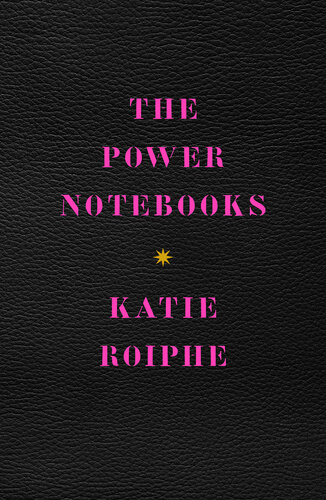
The Power Notebooks
کتاب های مرتبط
- اطلاعات
- نقد و بررسی
- دیدگاه کاربران
نقد و بررسی

January 15, 2020
A collection of personal journal entries from the feminist writer that explores power dynamics and "a subject [she] kept coming back to: women strong in public, weak in private." Cultural critic and essayist Roiphe (Cultural Reporting and Criticism/New York Univ.; The Violet Hour: Great Writers at the End, 2016, etc.), perhaps best known for the views she expressed on victimization in The Morning After: Sex, Fear, and Feminism (1994), is used to being at the center of controversy. In her latest work, the author uses her personal journals to examine the contradictions that often exist between the public and private lives of women, including her own. At first, the fragmented notebook entries seem overly scattered, but they soon evolve into a cohesive analysis of the complex power dynamics facing women on a daily basis. As Roiphe shares details from her own life, she weaves in quotes from the writings of other seemingly powerful female writers who had similar experiences, including Sylvia Plath, Simone de Beauvoir, Virginia Woolf, and Hillary Clinton. In one entry, Roiphe theorizes that her early published writings were an attempt to "control and tame the narrative," further explaining that she has "so long and so passionately resisted the victim role" because she does not view herself as "purely a victim" and not "purely powerless." However, she adds, that does not mean she "was not facing a man who was twisting or distorting his power; it does not mean that the wrongness, the overwhelmed feeling was not there." Throughout the book, the author probes the question of why women so often subjugate their power in their private lives, but she never quite finds a satisfying answer. The final entry, however, answers the question of why she chose to share these personal journal entries with the public: "To be so exposed feels dangerous, but having done it, I also feel free." An intriguing examination of the complexity of female power in a variety of relationships.
COPYRIGHT(2020) Kirkus Reviews, ALL RIGHTS RESERVED.

January 27, 2020
Roiphe (The Violet Hour) circles “a subject I keep coming back to: women strong in public, weak in private,” in this bright and dynamic collection of shorts that she wrote “during a time of upheaval” encompassing pregnancy, divorce, sexual entanglements, and single motherhood. Using personal experience as her template, Roiphe layers episodes of her own “confusion, self-contempt, conflict” with those of women writers Simone de Beauvoir, Sylvia Plath, Mary McCarthy, and Edith Wharton. In a pivotal scene, Roiphe is forced to walk home when her abusive husband, enraged by their crying infant, kicks mother and baby out of his car. Inside their apartment, his shouting is heard by neighbors and terrifies their child, yet she remains “quiet, still, vacating,” confessing “not a single friend... would recognize me.” Accounts of other dysfunctional relationships—the 35-year-old divorced rabbi who seduced her at 15—are clinically conveyed. Throughout, she addresses the disconnect between her public and private selves, admitting, “authority... the form power takes on the page, is a fiction... something I dreamed up because I would like to have it.” Roiphe’s astute memoir reverberates with rich prose, crisp pacing, and self-compassion. Agent: Suzanne Gluck.

February 15, 2020
Roiphe is a forthright journalist and commentator whose views on women's lives have ignited indignation and a commanding author of inquisitive books of literary history, including The Violet Hour (2016). In this arrestingly intimate and cathartic work, drawn from notebooks she kept during a recent "time of upheaval," she reveals her struggles with doubt, confusion, pain, and anxiety, forging an audaciously articulate, prodigiously candid, and thought-provoking blend of memoir, literary biography, confession, and dissection. Roiphe examines, anecdotally and analytically, the pain and bafflement of a failed marriage, the terrors and joy of single motherhood, the bewilderment of loving someone afflicted with addiction, the exhausting vicissitudes of academia, and the mortifying gap between emotion and intellect. She ponders imbalances of power in personal relationships and in society, the perverse pleasures of jealousy and female martyrdom, and the persistent fear and resentment of strong women. Seeking guidance and inspiration, Roiphe delves into the lives of women writers, from Edith Wharton to Mary McCarthy, praising Simone de Beauvoir as a brilliant elucidator, which Roiphe is, too, to deeply clarifying and affirming effect.WOMEN IN FOCUS(Reprinted with permission of Booklist, copyright 2020, American Library Association.)

























دیدگاه کاربران